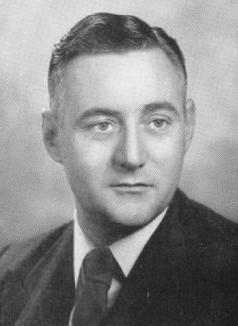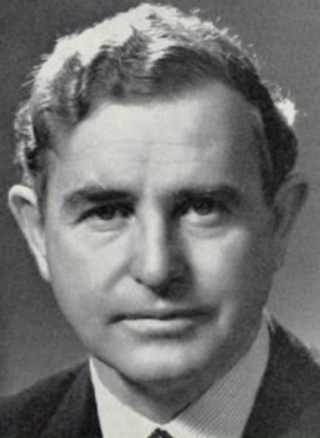
Hansard is the transcripts of parliamentary debates in Britain and many Commonwealth countries. It is named after Thomas Curson Hansard (1776–1833), a London printer and publisher, who was the first official printer to the Parliament at Westminster.

The speaker of the Australian House of Representatives is the presiding officer of the Australian House of Representatives, the lower house of the Parliament of Australia. The counterpart in the upper house is the president of the Senate. The office of the speakership was established in 1901 by section 35 of the Constitution of Australia. The primary responsibilities of the office is to oversee house debates, determine which members may speak, maintain order and the parliamentary and ministerial codes of conduct during sessions and uphold all rules and standing orders. The current speaker of the House of Representatives is Milton Dick, who was elected on 26 July 2022.
This is a list of members of the Australian House of Representatives from 1966 to 1969, as elected at the 1966 federal election.

Philip Ernest Lucock, CBE was an Australian politician and Presbysterian minister. He served in the House of Representatives from 1952 to 1980, representing the Division of Lyne for the Country Party. He was Deputy Speaker for a record span of over 13 years.

Sir David Eric Fairbairn, was an Australian politician. He was a member of the Liberal Party and served in the House of Representatives from 1949 to 1975. He held ministerial office as Minister for Air (1962–1964), National Development (1964–1969), Education and Science (1971), and Defence (1971–1972).

Ralph James Dunnet Hunt AO was a Deputy Leader of the National Party of Australia.

Mark Maclean Coulton is an Australian politician. He is a member of the National Party and has served in the House of Representatives since the 2007 federal election, representing the Division of Parkes in New South Wales. He has served as Minister for Regional Health, Regional Communications and Local Government (2020–2021), Minister for Regional Services, Decentralisation and Local Government (2019–2020), Assistant Minister for Trade and Investment (2019–2020), Assistant Minister for Trade, Tourism and Investment (2018–2019), and Deputy Speaker of the House (2016–2018).

Sir William John Aston, KCMG was an Australian politician. Born in Sydney, he attended state schools before becoming an accountant and company director. He served in World War II from 1942 to 1944, and was involved in local politics as a member of Waverley Council. In 1955, he was elected to the Australian House of Representatives as the Liberal member for Phillip. He held the seat until 1961, when he was defeated by Syd Einfeld of the Labor Party. Aston returned to the House in 1963, defeating Einfeld. On 21 February 1967 Aston was elected Speaker. He held this position until the Liberal Government's defeat at the hands of Gough Whitlam in 1972, when Aston lost his seat. He died in 1997.
A by-election was held for the Australian House of Representatives seat of Boothby on 21 February 1981. This was triggered by the resignation of Liberal Party MP John McLeay, who subsequently took up the role of Consul General in Los Angeles. It was held on the same day as by-elections for Curtin and McPherson.
Members of the New South Wales Legislative Assembly who served in the 32nd parliament held their seats from 1938 to 1941. They were elected at the 1938 state election, and at by-elections. The Speaker was Reginald Weaver.
Roger Bede Nott was an Australian politician and a member of the New South Wales Legislative Assembly from 1941 until 1961. He was a member of the Labor Party and held numerous ministerial positions between 1954 and 1961. He was the Administrator of the Northern Territory between 1961 and 1964.
Leo Mervyn Nott was an Australian politician and a member of the New South Wales Legislative Assembly between 1953 and 1968 and again between 1971 and 1973. He was a member of the NSW Branch of the Labor Party.
A by-election was held for the Australian House of Representatives seat of Curtin on 21 February 1981. This was triggered by the resignation of Liberal MP Victor Garland in order to be appointed High Commissioner of Australia to the United Kingdom. It was held on the same day as by-elections for Boothby and McPherson.
A by-election was held for the Australian House of Representatives seat of McPherson on 21 February 1981. This was triggered by the sudden death of Liberal Party MP Eric Robinson. It was held on the same day as by-elections for Boothby and Curtin.
A by-election was held for the Australian House of Representatives seat of Bendigo on 7 June 1969. This was triggered by the resignation of Labor MP Noel Beaton. A by-election for the seat of Gwydir was held on the same day.
A by-election was held for the Australian House of Representatives seat of Curtin on 19 April 1969. This was triggered by the resignation of Liberal MP Sir Paul Hasluck to become Governor-General. It was the first federal by-election to be held in Western Australia since the 1945 Fremantle by-election, and only the seventh since Federation.
In the Parliament of Australia, the political parties appoint party whips to ensure party discipline, help manage legislative business and carry out a variety of other functions on behalf of the party leadership. Additional functions of the government party whips is to ensure that a sufficient number of government members and senators are present in the chamber to ensure passage of government legislation and measures and to prevent censure motions succeeding, and to ensure presence of a parliamentary quorum. Their roles in the chamber include tally votes during divisions, and arranging pairs which affects the ability of members and senators to leave parliament during sittings, as well as the entitlement to be absent during divisions.
Section 13 of the Constitution of Australia provides for three aspects of the terms of members of the Australian Senate: the timing of elections, the commencement date of their terms and for the Senate to allocate long (six-year) and short (three-year) terms following a double dissolution of the Parliament of Australia. While members of the House of Representatives and territory senators have a maximum three-year term, state senators have a fixed six-year term, subject only to the parliament being dissolved by a double dissolution.








